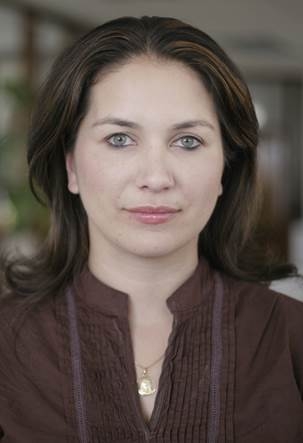
Sex slavery. Famine. Child labor. New York Times correspondent Rukmini Callimachi has covered the most horrifying atrocities that human beings can unleash upon each other. She has traveled to the world’s most perilous conflict zones and impoverished communities to shed light on unfathomable human suffering.
Callimachi’s relentless reporting has exposed hard truths that needed to be told. Her investigative article “ISIS Enshrines a Theology of Rape” provided a rare insight into the group’s horrific institutionalization of sex slavery. She showed, as never before, how sexual abuse was ingrained in ISIS ideology. Callimachi interviewed 21 victims, sifted through ISIS’s official communications, and examined reports by Human Rights Watch and Amnesty International for her article, giving voice to the abused.
She does so despite the unparalleled risks facing journalists who cover ISIS. “As the beheading of journalist James Foley showed, groups like the Islamic State have now defined journalists as ‘enemy combatants’ for the crime of reporting facts that are not agreeable to their worldview,” Callimachi explains. These days, she says, “reporters face the same risks as soldiers: We are the enemy and we are deemed legitimate targets.”
And yet, Callimachi has repeatedly ventured into enemy territory. She rummaged through overturned file cabinets to find letters written by al-Qaeda’s suspected general manager in Mali. And she spent weeks accompanying the relatives of the missing as they dug up bodies of Arab and Tuareg residents killed by Malian troops. No assignment was ever too dangerous or out of reach.
If digging up the dead didn’t scare her from covering terrorism, neither did her experience of being one of the only reporters who witnessed a massacre committed by government forces in Ivory Coast several years ago. After hearing from survivors where the killings took place, she embarked on a trail toward the spot, traveling one step at a time, until she came to a clearing where the bodies lay.
Her storytelling technique—speaking from the victim’s viewpoint—brings harsh realities to life. She once interviewed hundreds of children in West Africa, following them day by day so she could tell their detailed first-person stories of exploitation. Her work has exposed how Islamic schools in Senegal lured children into begging through the false promise of education, linked child labor in gold mines in Senegal to banks in Switzerland, and examined child trafficking from Africa to the United States.
She exposes such human rights violations in the hopes of ultimately inspiring change. Her story chronicling the plight of the dead she saw unearthed in Mali forced the government to launch an investigation into the matter. And in Ivory Coast, lawyers working with the International Criminal Court used her evidence for their case.
That is what fuels Callimachi’s hope for the future. “Journalism is like a flashlight, which beams a pool of light on an issue, a crime, a government abuse or another atrocity,” she says. “I hope that in some small way, my work can illuminate the darkest corners of the world.”
Related content: New York Times Reporter Receives ICFJ Integrity in Journalism Award.